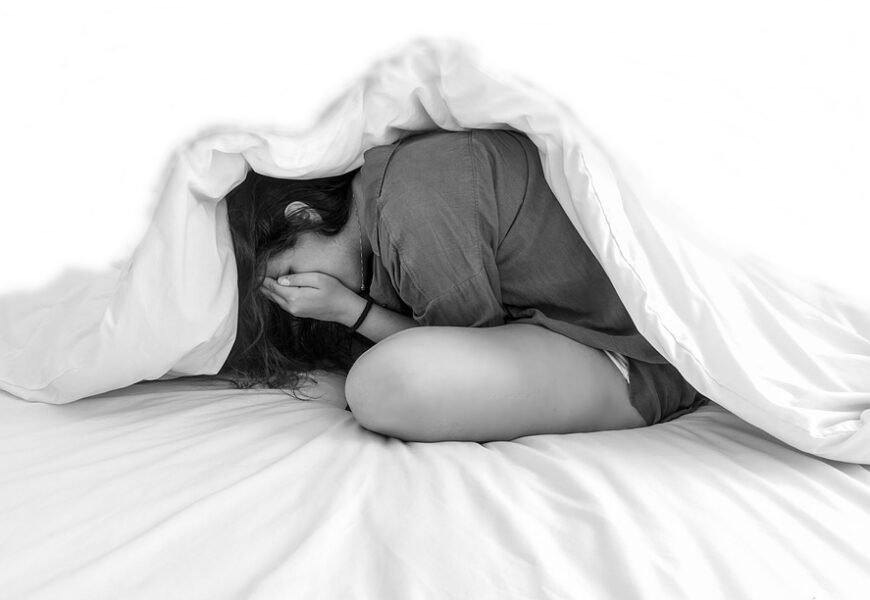Have you ever found yourself tossing and turning in bed, desperately seeking sleep while your mind races with a million thoughts? You’re not alone in this struggle. Anxiety and sleep issues often go hand in hand, creating a cycle that can feel impossible to break. As exhaustion sets in, feelings of unease and worry seem to magnify, leading to restless nights and even more challenging days. This article provides thoughtful and practical advice focused on anxiety and sleep, offering tips for restful nights and calmer days that can help you regain control of your life.
Understanding the Core Issue
The Interconnection Between Anxiety and Sleep
Understanding the relationship between anxiety and sleep is crucial for anyone looking to find relief. Anxiety can manifest as racing thoughts, tension, and worry, making it difficult to quiet the mind in order to fall asleep. Conversely, poor sleep can exacerbate anxiety, creating a vicious cycle. According to studies, individuals with anxiety disorders often report sleep disturbances, leading to a significant decline in overall quality of life.
The Science Behind Sleep Anxiety
From a physiological perspective, anxiety triggers a fight-or-flight response, increasing cortisol levels—one of the primary stress hormones. Higher cortisol levels can lead to a state of hyper-arousal that keeps you awake at night. The body becomes accustomed to this state, making it even more challenging to calm down when it’s time for bed. Furthermore, sleep deprivation can affect serotonin, the neurotransmitter crucial for regulating mood, thus perpetuating feelings of anxiety.
Mixed Signals and Fear of Sleep
Many people experiencing anxiety develop a fear of sleep itself, associating bedtime with feelings of dread as they anticipate their mind racing. This mental battle can lead to what some may call “sleep anxiety,” whereby the fear of not being able to sleep creates additional anxiety about falling asleep. Recognizing these patterns is a vital first step in breaking the cycle.
Practical Tips and Strategies
Create a Calming Bedtime Routine
To combat anxiety surrounding sleep, develop a bedtime routine that signals to your body that it’s time to wind down. Start by dimming the lights an hour before bed and consider activities such as reading, gentle yoga, or meditation. Avoid screens, as the blue light emitted can interfere with melatonin production.
Incorporate Relaxation Techniques
Several relaxation techniques can help soothe anxiety and encourage restful sleep. Try:
- Deep Breathing Exercises: Focus on inhaling slowly for a count of four, holding for four, and exhaling for a count of six.
- Progressive Muscle Relaxation: Tense and release muscle groups throughout your body to relieve physical tension.
- Guided Meditation Apps: Explore apps like Headspace or Calm that offer guided meditation focused on relaxation and sleep.
Optimize Your Sleep Environment
Creating a sanctuary for sleep can make all the difference. Start with comfortable bedding, and ensure the room is dark, quiet, and cool. Consider using blackout curtains, earplugs, or a white noise machine to eliminate disturbances. The aim is to create an environment where your body feels safe and ready for sleep.
Limit Stimulants and Alcohol
Be mindful of your evening habits. Consuming caffeine or alcohol too close to bedtime can interfere with your ability to fall asleep and stay asleep. Instead, opt for herbal teas like chamomile or valerian root, which are known for their calming effects.
Keep a Sleep Journal
Anxiety often stems from unexpressed thoughts and worries. Keeping a sleep journal can be an effective way to untangle those racing thoughts. Write down your concerns, record your sleep patterns, and track any correlations between your emotions and your sleep quality. This practice not only provides insight but can also help clear your mind before slipping into slumber.
Real-Life Examples
Sarah’s Sleep Transformation
Sarah struggled with sleepless nights for months, filled with anxiety about her work performance. She started by incorporating a regular meditation practice into her bedtime routine and discovered how beneficial it was in quieting her mind. Over time, Sarah also learned to limit her caffeine intake in the afternoons and began keeping a sleep journal. Within weeks, she experienced significant improvements, not only in her sleep quality but also in her day-to-day anxiety levels.
Mike’s Journey with Sleep Hygiene
Mike, a busy father of three, felt overwhelmed with responsibilities. His sleep anxiety rose alongside his stress levels, leading him to dread bedtime. After seeking advice, Mike made gradual changes to his evening routine. He set boundaries around screen time and involved his children in calming activities like reading together before bed. He noticed that not only did this approach help him unwind, but it also created treasured family moments that set a positive tone for the night.
The Power of Community Support
Hannah found comfort by joining a local support group for individuals battling anxiety. Sharing her experiences with others led to a sense of camaraderie that eased her concerns about sleep. She gained practical tips from peers, like using essential oils, which she found soothing. Through this collective experience, Hannah transformed her anxiety into shared stories, discovering she was far from alone.
Overcoming Challenges
The Relapse into Old Habits
Staying committed to new routines can be daunting, especially when facing setbacks. It’s essential to remember that progress isn’t linear; there will be tough nights. If you find yourself slipping back into old habits, gently remind yourself of the victories you’ve achieved and what worked for you in the past. This could be a particular relaxation technique or a supportive conversation with a friend.
Addressing Nighttime Anxiety
When feelings of anxiety arise at night, it can disrupt even the best-laid plans. Create a plan for when anxiety strikes while in bed. For instance, have a notebook on your nightstand where you can jot down any thoughts that come to mind without judgment. This practice can drive home the message that you can return to those thoughts in the morning, allowing you to refocus on rest.
When to Seek Professional Help
For some, self-help strategies may not suffice, and professional guidance may be necessary. If anxiety and sleep issues persist despite trying various techniques, consider speaking to a therapist, counselor, or sleep specialist. Professional support can offer tailored strategies that address your unique situation and provide a safe space to explore your concerns.
Conclusion
Navigating the intertwining path of anxiety and sleep can feel overwhelming. However, with patience and the right strategies, restfulness can be reclaimed, paving the way for brighter days. Implementing a calming bedtime routine, optimizing your sleep environment, and being mindful of your habits can significantly impact your sleep quality and anxiety levels.
As you embark on this journey, remember that small changes can lead to significant improvements. The path to restful nights and calmer days may have its challenges, but each step is a move toward a more peaceful existence. Hold onto the hope of better sleep and reduced anxiety, and remind yourself that you are not alone in this journey. By waking up refreshed and empowered, you take one more step toward a life filled with calm and clarity.














